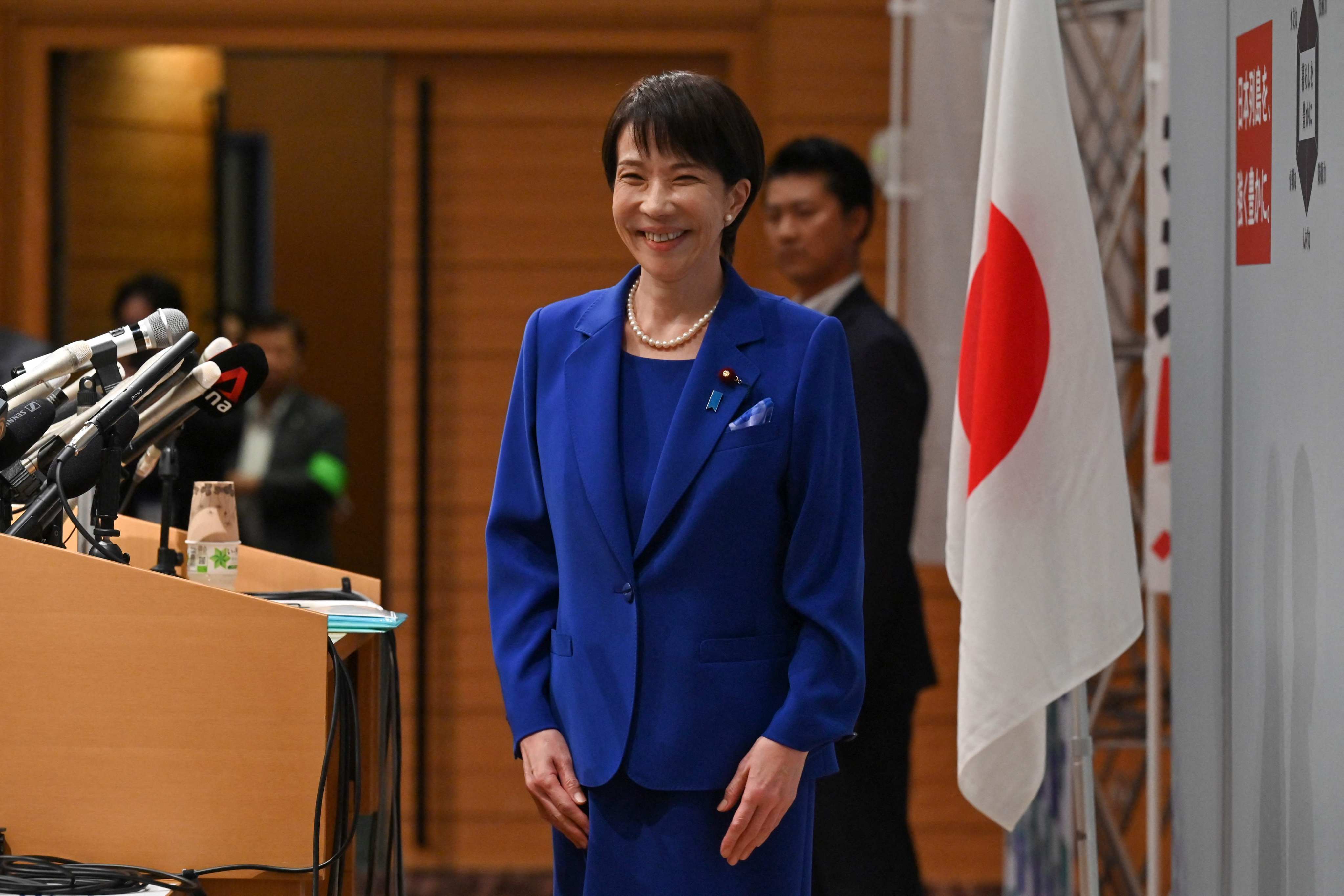By Maria Siow
Copyright scmp

As Japan prepares to swear in its first female prime minister, old ghosts of the past are threatening to haunt her leadership.
Sanae Takaichi’s hard-edged views on history and national identity have stirred anxieties from Seoul to Beijing, even though analysts believe the former security minister’s stance may be tempered by the realities of fragile coalitions in a volatile region.
Takaichi’s election last weekend as leader of the ruling Liberal Democratic Party marked a moment of both historic symbolism and political uncertainty.
Once a protégé of the late Shinzo Abe, she has championed a muscular foreign policy and advocated revising Japan’s pacifist constitution, particularly Article 9 that renounces the right to wage war.
Her conservative credentials, burnished by past visits to the contentious Yasukuni Shrine – where Japan’s war dead, including convicted war criminals, are commemorated – have drawn ire from both South Korea and China, who see the site as a potent symbol of Japan’s unresolved wartime legacy.
‘Revisionist impulses’
Takaichi has repeatedly questioned mainstream accounts of “comfort women”: a euphemism for the thousands of women, most of them Korean, who were forced into sexual slavery by Japan’s military during World War II.
She also insists on Japan’s sovereignty over the disputed Liancourt Rocks, a group of islets known to Tokyo as Takeshima but administered by South Korea as Dokdo, and has publicly encouraged ministers to attend the annual “Takeshima Day” event, declaring, “there is no need to be cautious” about asserting Japan’s territorial claims.
Despite the hard-edged rhetoric, however, analysts suggest a more pragmatic leader may emerge once Takaichi takes office.
Sebastian Maslow, an associate professor at the University of Tokyo’s Institute of Social Science whose research focuses on East Asian security affairs, predicted that Takaichi would “temper her revisionist impulses, at least initially, to avoid destabilising her administration”.
That said, he expects her administration to “continue the conservative policy trajectory established under Abe”, pointing to signs that she is considering figures with ties to Japan’s largest ultranationalist NGO for her new cabinet.
The LDP that Takaichi now leads currently lacks a clear majority in both chambers of the Diet and its junior coalition partner, Komeito, is deeply wary of her revisionist agenda.
Komeito’s leader, Tetsuo Saito, last week hinted at a possible coalition rupture, reportedly voicing concern over visits to Yasukuni and the diplomatic fallout such gestures have provoked in the past in a private meeting with Takaichi.
“Any potential new coalition partners would likely prioritise economic policy … [and] would view renewed diplomatic friction with South Korea resulting from her conservative stance as a potential risk to Japan’s economy,” Maslow said.
Given Takaichi’s hawkish position towards China, she may be cautious not to jeopardise relations with Seoul
Sebastian Maslow, social scientist
The early composition of Takaichi’s team nods to her nationalist base: both Haruko Arimura and Keiji Furuya, appointed on Tuesday to key party posts, are reported to have ties to Nippon Kaigi, a powerful right-wing lobby group known for championing patriotic education and downplaying Japan’s wartime transgressions.
Still, according to Maslow there is growing recognition within the LDP that diplomatic stability with South Korea is essential, both to anchor the US-Japan alliance and counterbalance China’s growing assertiveness.
“Given Takaichi’s hawkish position towards China, she may be cautious not to jeopardise relations with Seoul if it risks undermining her broader security objectives,” he said.
Analysts predict Takaichi will take a hardline stance on Beijing while being supportive of Taiwan, whose leader William Lai Ching-te on Saturday lauded her as a “staunch friend” on social media.
Beijing sees Taiwan as part of China to be reunited by force if necessary. While many nations, including the US, do not officially acknowledge Taiwan as an independent state, they oppose any use of force to alter the existing status quo.
Kei Koga, an associate professor of public policy and global affairs at Singapore’s Nanyang Technological University, expects Takaichi to tread cautiously on sensitive historical issues such as Yasukuni.
He said the LDP’s position at the head of a minority government meant it must seek compromises and “maintain a degree of ambiguity” on sensitive historical issues, while Takaichi’s lack of diplomatic experience made it unlikely that Seoul would see her as the most suitable leader to nurture bilateral ties.
“The key question is how her South Korean counterpart, President Lee Jae-myung, perceives her diplomatic stance and responds to it,” he said.
Tom Phuong Le, an associate professor of politics at Pomona College in the US who specialises in Japanese security policies, argued that despite Takaichi’s forceful rhetoric, her approach in office might prove more moderate.
“There’s nothing Japan could do with Dokdo/Takeshima,” he said, noting that even under Abe, Japan made no substantive moves on the disputed islets.
“Japan will continue to press its claims, but will not take any physical moves,” Le added, suggesting that South Korea’s “rather pragmatic” president might be willing to seek common ground.
Major breakthroughs on the most contentious issues seemed unlikely, Le said: “We won’t see any transformative reconciliation concerning comfort women, but that was unlikely with the major candidates anyway.”
He predicted that both Takaichi and Lee would find only limited opportunity to enact change amid US President Donald Trump’s ongoing tariff turmoil and their own countries’ demographic decline.
“Trump is a wild card and can change his opinion on a dime,” Le said. “Takaichi and Lee will have to adjust to that. They will get a honeymoon period, but that will run out once the economy and population decline start to weigh on their ability to make meaningful changes.”